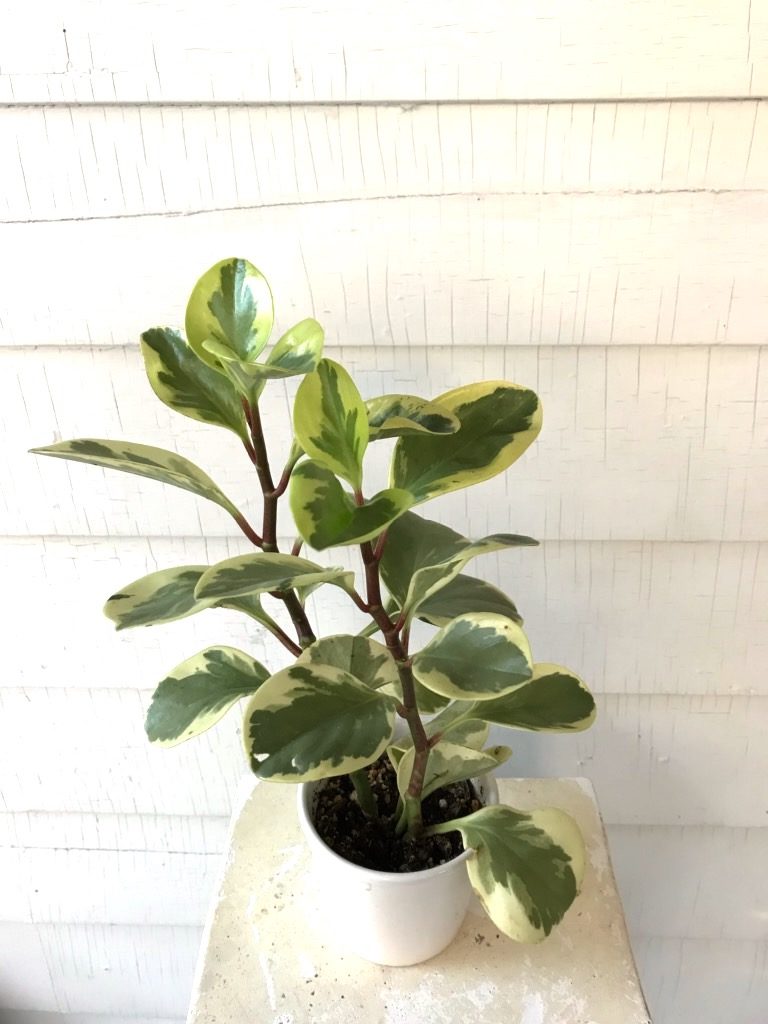Similarly one may ask, are rubber plants toxic to cats? In almost all the “which plants are toxic to cats” webpages, including the aspca, the indian rubber plant, and the jade rubber plant.
Rubber Plant Safe For Cats, Peperomia is an excellent option, safe for both cats and dogs. The shiny glossy fallen leaves look terrific in a lot of houses and although young plants start off little they will certainly fill up space in a vacant corner rapidly.

Peperomia is an excellent option, safe for both cats and dogs. If your cat eats any rubber plant material, it may endure drooling, vomiting, diarrhea, and a loss of appetite. A really helpful description of why many plants are poisonous to cats is contained in the opening 30 seconds of garden up’s video tutorial below. ) is all you need.
Are ficus plants safe for cats?
There is no antidote for rubber plant exposure and treatment is aimed at managing clinical signs. Rubber tree (ficus benjamina) note: The fur of cats or dogs acts as a defensive shield against the external environment. There is only one thing you need: They’re smaller and sometimes called “american rubber plant” or “baby rubber plant.” a toxic member of the ficus family is the ficus benjamina, which can sometimes go by “indian rubber plant.” it really looks nothing like a rubber tree at all. However, is rubber plant toxic to cats?
 Source: decoist.com
Source: decoist.com
According to the aspca, contact with the skin can cause dermatitis, while ingestion. Skin irritation and salivation are two of the symptoms of dermatitis, while ingestion can. However, is rubber plant toxic to cats? Are rubber plants cat friendly? Rubber tree (ficus benjamina) note:
 Source: awescats.blogspot.com
Source: awescats.blogspot.com
Alocasia (elephant�s ear) | scientific names: For some reason rubber plants were never a plant i could keep alive. Are rubber plants poisonous to cats. Rubber tree (ficus benjamina) note: Cats are poisoned by latex, a milky sap secreted by a damaged rubber plant (ficus elastica).
 Source: thisdogslife.co
Source: thisdogslife.co
Some, like the japanese rubber plant, silver dollar plant, ficus elastica or indian rubber tree can cause nausea, vomiting, and even disorientation if ingested. If your pets are curious and love to play around with your plants, choose a relatively less toxic member of the rubber plant. Rubber tree sap contains latex, a compound that is a known irritant to.
 Source: pinterest.com
Source: pinterest.com
According to the aspca, contact with the skin can cause dermatitis, while ingestion can cause oral irritation, salivation and vomiting. If you are looking for a counterpart to the palm, the dwarf banana plant is an even more dramatic and safe choice for cats. For some reason rubber plants were never a plant i could keep alive. Herein, are ficus.
 Source: awescats.blogspot.com
Source: awescats.blogspot.com
Let’s investigate some pet friendly air purifying plants. Haworthia zebra (haworthia attenuata) a member of the succulent group of plants, this little plant, reminiscent of cacti, originates from south africa and is safe for cats and dogs. Some species of rubber plants are fine for cats and dogs. Components of latex, which give it. According to the aspca, contact with.
 Source: simplifyplants.com
Source: simplifyplants.com
Helps to remove toluene and xylene from the air and can help to increase overall air purification. ) is all you need. Are rubber plants poisonous to cats. This plant is a nice alternative to the hurricane plant (if you are looking for something more tropical). Some, like the japanese rubber plant, silver dollar plant, ficus elastica or indian rubber.
 Source: leafandpaw.com
Source: leafandpaw.com
Some species of rubber plants are fine for cats and dogs. The baby rubber plant’s larger cousin, the rubber tree (or ficus benjamina), is actually toxic to dogs and cats. Yes the rubber plant is gently harmful to animals as well as human beings. African wonder tree () | scientific names: Are ficus plants safe for cats?

According to the aspca, contact with the skin can cause dermatitis, while ingestion. While that word may invoke elements of danger for some, i assure you that these plants are not actively plotting against you in any way. Similarly one may ask, are rubber plants toxic to cats? Cats are poisoned by latex, a milky sap secreted by a damaged.
 Source: awescats.blogspot.com
Source: awescats.blogspot.com
Is peperomia obtusifolia poisonous to cats? Likewise, they play a significant role in protecting their skin if they are exposed to the sap of any rubber plants. These finicky plants are safe for your cat but you will end up having to mist. Components of latex, which give it. A really helpful description of why many plants are poisonous to.
 Source: leafandpaw.com
Source: leafandpaw.com
In almost all the “which plants are toxic to cats” webpages, including the aspca, the indian rubber plant, and the jade rubber plant. Baby rubber plant (peperomia) note: While these plants are not as toxic as some other species, and the reaction is typically not fatal. Are rubber plants cat friendly? True palms like parlor, ponytail, bamboo, and areca palms;
 Source: leafandpaw.com
Source: leafandpaw.com
However, is rubber plant toxic to cats? According to the aspca, contact with the skin can cause dermatitis, while ingestion can cause oral irritation, salivation and vomiting. In almost all the “which plants are toxic to cats” webpages, including the aspca, the indian rubber plant, and the jade rubber plant. Skin irritation and salivation are two of the symptoms of.
 Source: panissue.com
Source: panissue.com
Herein, are ficus elastica poisonous to cats? Are rubber plants toxic to cats and dogs? Some species of rubber plants are fine for cats and dogs. The baby rubber plant�s larger cousin, the rubber tree (or ficus benjamina), is actually toxic to dogs and cats. If you are looking for a counterpart to the palm, the dwarf banana plant is.
 Source: houseplantcentral.com
Source: houseplantcentral.com
This plant is a nice alternative to the hurricane plant (if you are looking for something more tropical). Rubber plants are toxic to cats, and you should contact your veterinarian if your cat has ingested this plant. Ginseng is commonly prescribed to dogs and cats. The video doesn’t mention rubber plants directly but i found it nonetheless in researching content.
 Source: pinterest.com
Source: pinterest.com
In almost all the “which plants are toxic to cats” webpages, including the aspca, the indian rubber plant, and the jade rubber plant. They are small babies like a plant. These finicky plants are safe for your cat but you will end up having to mist. According to the aspca, contact with the skin can cause dermatitis, while ingestion. Helps.
 Source: petpoisonhelpline.com
Source: petpoisonhelpline.com
African wonder tree () | scientific names: For some reason rubber plants were never a plant i could keep alive. According to the aspca, contact with the skin can cause dermatitis, while ingestion. Are cats ok with rubber plants? Some species of rubber plants are fine for cats and dogs.
 Source: pinterest.com
Source: pinterest.com
Likewise, they play a significant role in protecting their skin if they are exposed to the sap of any rubber plants. Peperomia is an excellent option, safe for both cats and dogs. If you are looking for a counterpart to the palm, the dwarf banana plant is an even more dramatic and safe choice for cats. While these plants are.
 Source: pinterest.com
Source: pinterest.com
Some, like the japanese rubber plant, silver dollar plant, ficus elastica or indian rubber tree can cause nausea, vomiting, and even disorientation if ingested. This plant is a nice alternative to the hurricane plant (if you are looking for something more tropical). Rubber tree sap contains latex, a compound that is a known irritant to many people. Likewise, they play.
![Are Rubber Plants Toxic To Cats?? [ANSWERED] Eden Indoors Are Rubber Plants Toxic To Cats?? [ANSWERED] Eden Indoors](https://i2.wp.com/www.edenindoors.co/wp-content/uploads/2020/08/pexels-scott-webb-1903964.jpg) Source: edenindoors.co
Source: edenindoors.co
While that word may invoke elements of danger for some, i assure you that these plants are not actively plotting against you in any way. True palms like parlor, ponytail, bamboo, and areca palms; Likewise, they play a significant role in protecting their skin if they are exposed to the sap of any rubber plants. ) is all you need..
 Source: leafandpaw.com
Source: leafandpaw.com
According to the aspca, contact with the skin can cause dermatitis, while ingestion can cause oral irritation, salivation and vomiting. If you are looking for a counterpart to the palm, the dwarf banana plant is an even more dramatic and safe choice for cats. ) is all you need. Helps to remove toluene and xylene from the air and can.
 Source: non-toxicplantsforcats.blogspot.com
Source: non-toxicplantsforcats.blogspot.com
The fur of cats or dogs acts as a defensive shield against the external environment. Alocasia (elephant�s ear) | scientific names: This may include fluid therapy to prevent or treat dehydration and electrolyte imbalances, withhold food for 24 hours or switch the cat to a bland diet to rest the gastrointestinal tract. Baby rubber plant (peperomia) note: They are small.
 Source: pinterest.com
Source: pinterest.com
While these plants are not as toxic as some other species, and the reaction is typically not fatal. It is bright and has regular watering. Some species of rubber plants are fine for cats and dogs. Components of latex, which give it. For some reason rubber plants were never a plant i could keep alive.
 Source: deserthorizonnursery.com
Source: deserthorizonnursery.com
According to the aspca, contact with the skin can cause dermatitis, while ingestion. Herein, are ficus elastica poisonous to cats? Cats are poisoned by latex, a milky sap secreted by a damaged rubber plant (ficus elastica). Click to see full answer. Never had to worry about cats getting to them, i killed the plants first.
 Source: rosesandcardamom.com
Source: rosesandcardamom.com
Some species of rubber plants are fine for cats and dogs. Herein, are ficus elastica poisonous to cats? Baby rubber plant (peperomia) note: Components of latex, which give it. Alocasia (elephant�s ear) | scientific names:
 Source: awescats.blogspot.com
Source: awescats.blogspot.com
African wonder tree () | scientific names: ) is all you need. These finicky plants are safe for your cat but you will end up having to mist. Skin irritation and salivation are two of the symptoms of dermatitis, while ingestion can. Rubber tree (ficus benjamina) note:
 Source: pinterest.com
Source: pinterest.com
It has small and has striped leaves, occasionally flowers but rarely when kept indoors. Alocasia (elephant�s ear) | scientific names: Skin irritation and salivation are two of the symptoms of dermatitis, while ingestion can. According to the aspca, contact with the skin can cause dermatitis, while ingestion. Some, like the japanese rubber plant, silver dollar plant, ficus elastica or indian.







